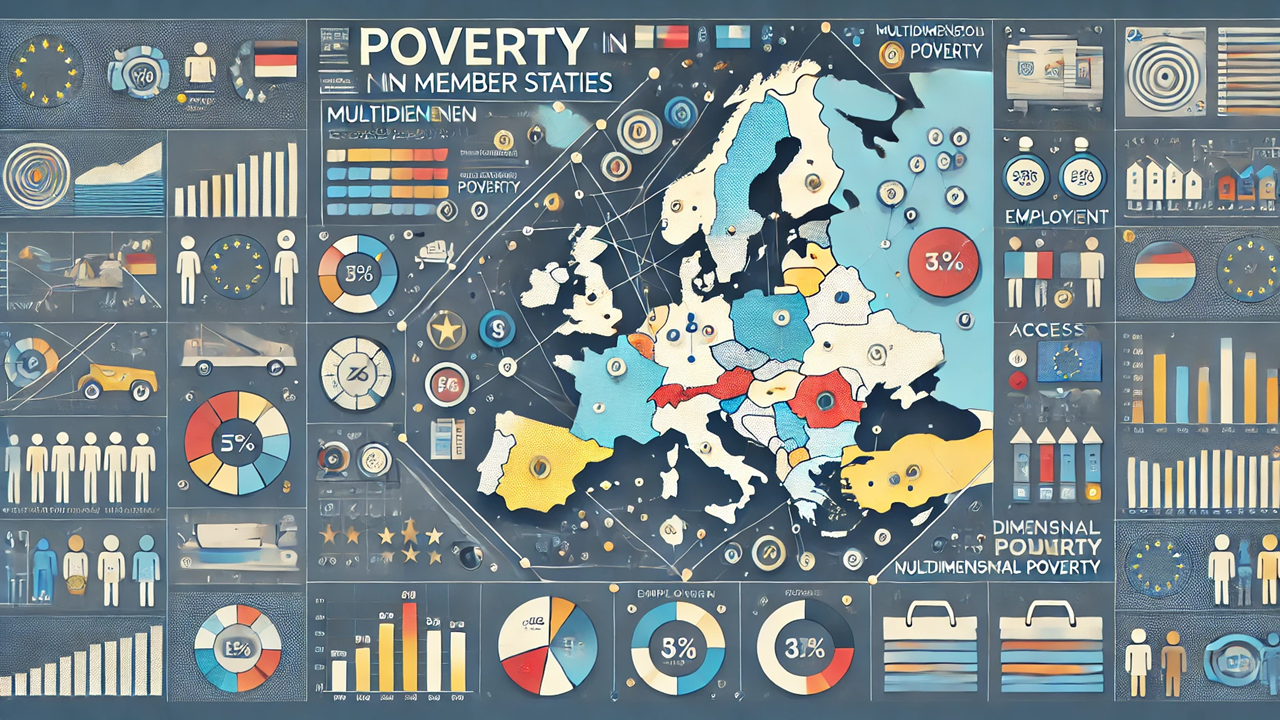Unveiling Multidimensional Poverty in the EU: A Deeper Look Beyond Income
The latest report, "Unveiling Multidimensional Poverty: Insights from the EU," published by the World Bank, explores the complexities of poverty beyond income levels, shedding light on social and economic deprivations across European nations. With significant disparities between countries and vulnerable groups such as children, the elderly, and low-skilled workers most affected, the findings call for comprehensive policy solutions. The report underscores the urgent need for a data-driven approach to poverty reduction, emphasizing social protection, employment policies, and coordinated EU-wide efforts.

Poverty in the EU is more than just an economic issue—it is a multidimensional crisis that extends beyond financial hardship. A new report, Unveiling Multidimensional Poverty: Insights from the EU, published by the World Bank, challenges conventional income-based poverty assessments. It highlights how individuals in Europe experience deprivation in many ways, including limited access to education, healthcare, housing, and social participation. The study emphasizes the need for policymakers to shift toward a holistic, data-driven approach to tackling economic and social inequalities.
The report introduces the Multidimensional Poverty Index (MPI), which evaluates poverty using multiple indicators beyond income levels. It considers housing quality, employment stability, educational attainment, and access to essential services to give a more complete picture of economic hardship. The findings reveal that Southern and Eastern European nations are the most affected by multidimensional poverty, with children, the elderly, unemployed individuals, single-parent households, low-skilled workers, and migrants being the most vulnerable. Economic crises further worsen these disparities, particularly in countries where social protection systems are weak.
The findings also emphasize that addressing multidimensional poverty requires a coordinated policy response. Merely increasing income is not enough; governments must also enhance access to social services and strengthen safety nets. The report outlines three key policy recommendations:
Integrated Social Protection Systems that combine financial assistance with access to education, healthcare, and housing to prevent long-term deprivation.
Stronger EU Coordination, urging governments and EU institutions to align their policies and ensure that social programs are adequately funded and effectively implemented.
Improved Data Collection to create more accurate, comprehensive poverty assessments, which would help design better-targeted interventions.
The report argues that while economic growth can contribute to poverty reduction, structural social policy changes are equally essential. Sustainable poverty reduction requires investments in education, employment programs, and housing to create lasting opportunities for individuals.
The message of Unveiling Multidimensional Poverty: Insights from the EU is clear: poverty is not just a lack of money—it is a lack of opportunity, dignity, and inclusion. Tackling it effectively requires bold policy reforms, stronger international cooperation, and a commitment to ensuring that no one is left behind.
- FIRST PUBLISHED IN:
- Devdiscourse










